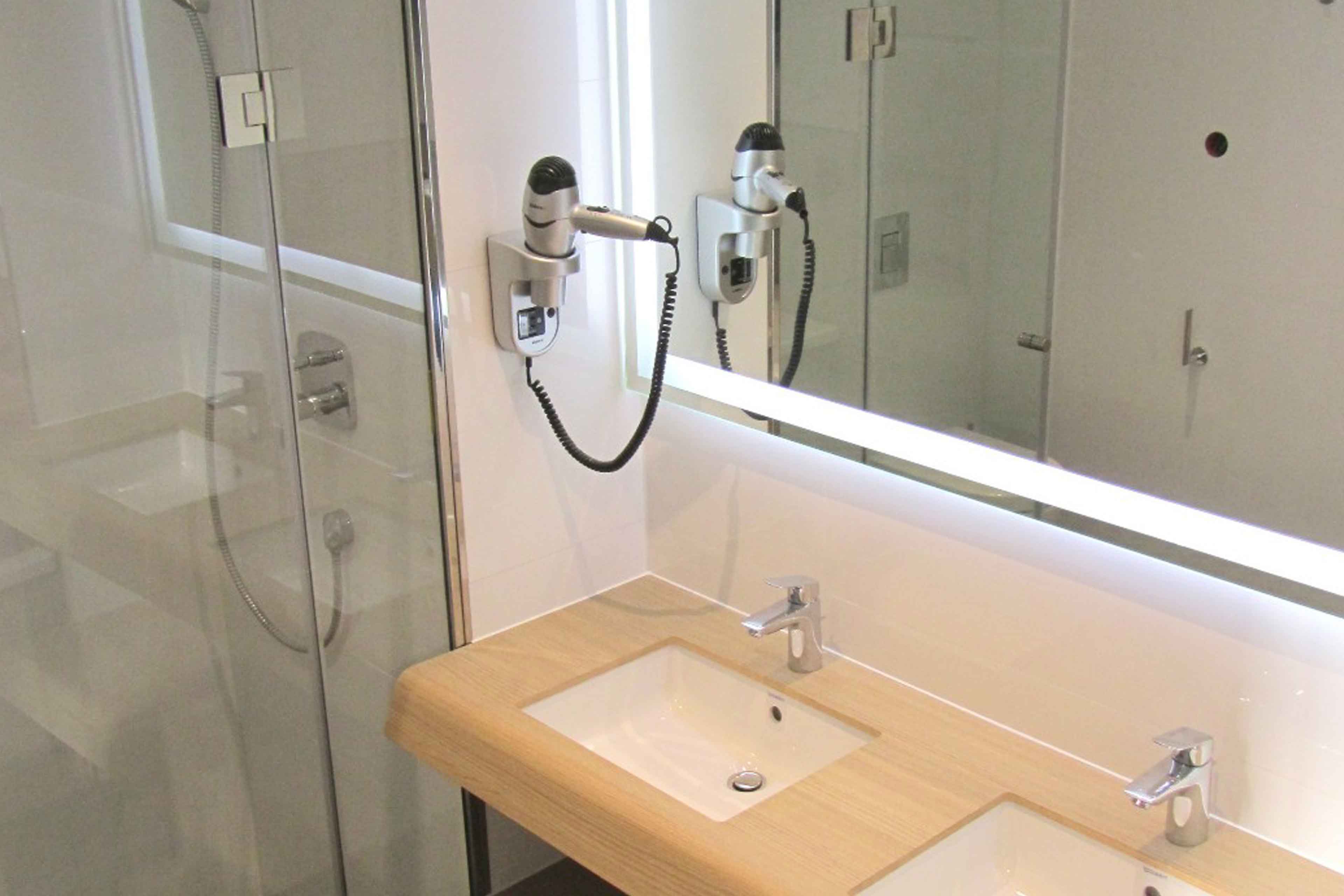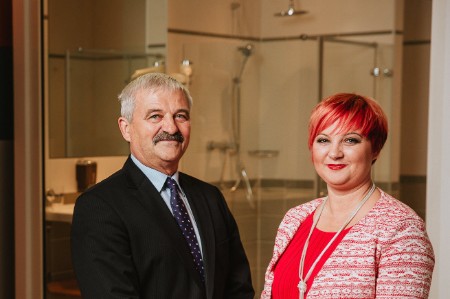Construction using prefabricated bathrooms as a synonym for quality and cost efficiency
Their independent story began after the break-up of Yugoslavia when, due to the collapse of the market and mass lay-offs, many companies went bankrupt. Gorenje IMO met a similar fate in 1991 and from its ashes, four companies rose to prominence. One of these was Varis, which in accordance with the law on transformation, became Varis, proizvodnja sanitarih celic d.o.o., a joint-stock company with 380 shareholders, in 1997. “The Slovenian market was non-existent, so we had to focus on foreign markets. We have done so and today we hold a 14% market share in Germany alone. Our success relies completely on sales abroad and only 1% or 2% of sales are made in Slovenia. Our major markets include Germany, Austria, Switzerland and Denmark, followed by Croatia, Hungary, Russia, France, Spain and the UK,” emphasizes Štefan Sobočan of their international orientation. He worked as a director of Gorenje IMO and after its collapse continued his work in Varis. Over the years, together with his daughter, they bought the shares of those with no faith in the company and eventually the two became majority shareholders. No dividends were paid as all the profits were invested in the further development of the company and this strategy has since proven extremely successful.
Their main advantage is that they speed-up construction. As has been demonstrated, using prefabricated bathrooms cuts the construction time of a hotel with 130 bathrooms by three months, resulting in considerable cost savings. Prefabricated bathrooms made from light concrete are manufactured as independent construction elements and delivered to a facility completely finished, tiled and with all the assembly parts such as the sink, taps, mirrors, toilet and hair dryers. “All the processes involved are managed and controlled in compliance with the ISO 9001-2008 standard.
The majority of the electricity used in the manufacture is produced in our own photovoltaics. In addition, we have at our disposal our own computer supported concrete plant and we train our own workforce. Bathrooms that we supply for hotels are manufactured as you see it in our own plant in Lendava and delivered to the site in a truck. Once all the installations are connected, the bathroom is ready for use,” explains Sabina, the current Director of the company, of their workflow. What is their annual target? To sell and deliver 3,000 bathrooms. At the time of this interview, they had signed contracts that ensure production for the first half of the upcoming year already.

The heart of the family business is just beginning to beat
Family entrepreneurship and family business are very broad concepts, believes Štefan, interpreting them as follows: “According to general criteria in Slovenia and also the general public, who are not familiar with the industry, Varis is not considered a family business. However, we know that, contrary to the general belief, globally, most large corporations are in fact family businesses.” It was only last year that he and his daughter realized that in an international sense, the company is a family business. Like her father, Sabina also has concerns about the concept of a family business, since currently the company has several shareholders. Once it is formally transformed into a limited liability company (d.o.o.), it will be easier to feel that the family-owned company is in fact their own: “We have never identified Varis as a family business, because it is a public limited company. However, at the recent general meeting the decision to transform it into a limited liability company was endorsed and this will make it easier to identify the company as a family business.”
Before his retirement, Štefan had to make a rather difficult decision: to whom to hand over the company reins? As he says, he never wanted to work longer than necessary and he retired as soon as he had completed 40 years. There were a number of options available to him regarding his successor, but in the end, he chose his daughter. “You have three options available when choosing a successor. You can teach someone to do the job, recruit an experienced manager with references, or get someone from the family and train him or her to be your successor. Sabina used to work as an auditor and was not involved in the company. While I was considering these different options, one of my colleagues who knew Sabina as an auditor, asked me, ‘Why not choose Sabina?’. I told him that she was an auditor in the construction sector and, a woman,” admits Štefan of his hesitation, which was also due partly to stereotypes. After some deliberation, he decided to ask his daughter whether she would be willing to run the business and her response was positive. When she joined the company, she was first employed as an internal auditor, then as Assistant Director and finally came the day, when her father moved out of the office and handed over the reins to his daughter. “I attend meetings with our business partners as personal relationships, of which a great number have been forged over the 40 years of my service, are important; after all, transactions are agreed by people. However, the final decision is hers. My advice is based on experience and I always say to her: “I would do…; however, ultimately, it is your decision,” says Štefan, completing his thoughts.
“We have never identified Varis as a family business, because it is a public limited company. However, at the recent general meeting the decision to transform it into a limited liability company was endorsed and this will make it easier to identify the company as a family business.”
Tell me the solution, not the problem
Sabina’s running of the company differs from that of her father’s. While he was a proponent of a more authoritarian leadership and made most decisions by himself, she leaves accountability for decisions to the heads of departments. At first, the change in the management approach was not welcomed by the staff, admits Sabina: “There is continued resistance to this day; however, I keep telling them: “You were made heads of your departments to think with your own heads.” I do not want them to come to me with a problem, but rather the solution.” While her father knew almost all the company employees, Sabina does not, and has introduced a special method of getting to know the staff. “Occasionally I invite a group of employees, who recently celebrated their birthdays, to an informal meeting to enjoy a cup of coffee and have a chat. These informal gatherings are intended for all employees to get to know each other and also as an opportunity for me to congratulate them in person and give them a token gift.” This year the company has expanded its production and recruited new people, and today it employs 236 staff in total. The Director is aware that such a diverse group of people do not share the same expectations and desires and that at times her management approach may not be the best: “We are all different and sometimes this soft management approach is not effective. Sometimes you have to put your foot down. The head of a department should not be afraid to accept responsibility and, if something goes wrong, be accountable for it.”
Sabina’s children are already eyeing the company, even though her two sons are very young. “The older is in the third grade and the younger has just started school. They love to talk about the company and the eldest already has a vision of what he wants to do when he joins Varis,” says Sabina, sharing her thoughts with us.
Summary
Varis Lendava in a nutshell: quality, innovation, reliability, correct professional attitude, internationality.


